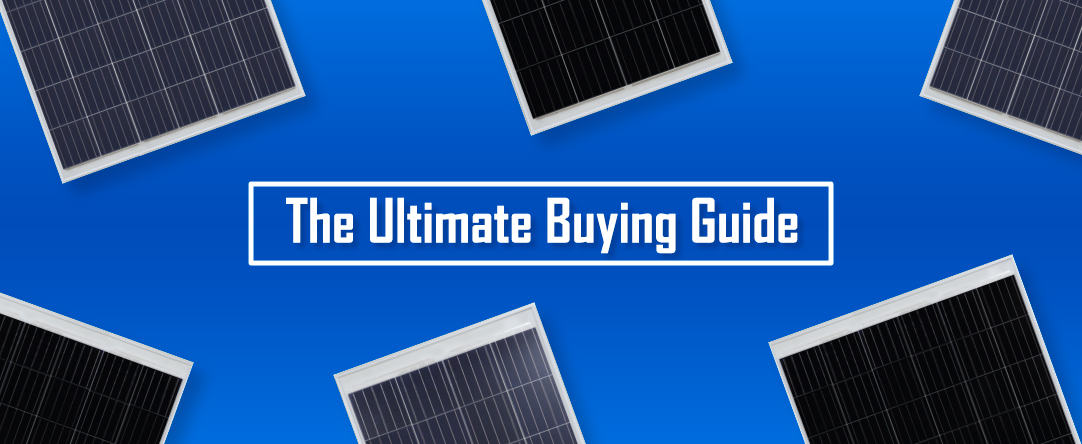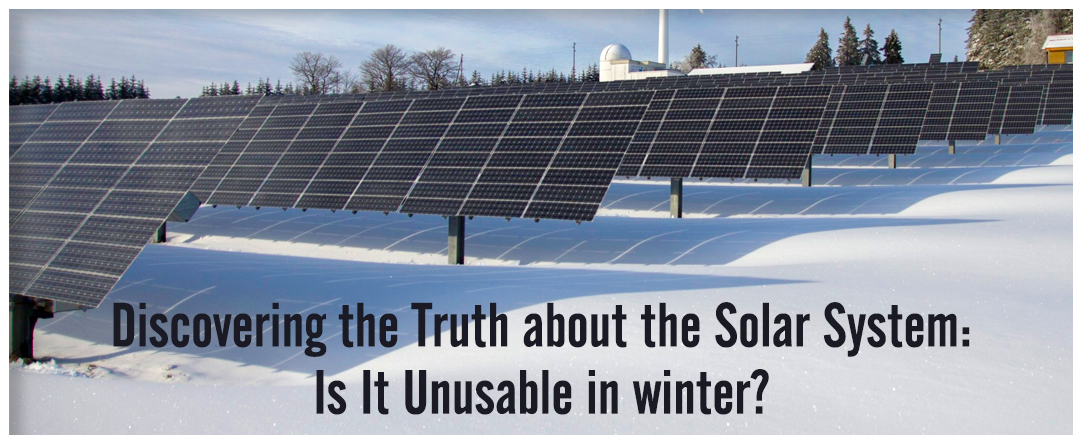
What to Consider before Installing Solar Panels in winter
December 14, 2022
Solar Panels | The Ultimate Buying Guide
November 17, 2022Even though solar panels are becoming increasingly popular, there are still many misconceptions about them. One of the most common is that they don’t work in the winter. But is this true? This blog post will explore the truth about solar panels and the solar system. We will debunk the myth that solar panels don’t work in winter and explore how you can make the most of them all year round.
Does the Solar System Become Unusable in winter?
The sun’s light becomes weaker as winter sets in and the days become shorter. This can lead people to believe that the solar system doesn’t work as well in winter. However, this isn’t true!
In summer, the sun is high, and its rays are direct. This means they don’t have to travel through as much atmosphere to reach us. However, in winter, the sun is lower in the sky, and its rays have to travel through more atmosphere. This makes them weaker, but it also means they’re warmer when they reach us.
So, while it may seem like the solar system doesn’t work as well in winter, this isn’t the case! The solar system continues to produce energy all year round, regardless of the weather.
What are the most common misconceptions about solar panels?
A few common misconceptions about solar panels often prevent people from using them to power their homes. One misconception is that solar panels do not work in cold weather or during the winter months. This is not true! Solar panels work better in cooler temperatures because they are less likely to overheat. Another misconception is that solar panels are too expensive to install and maintain. While the initial cost of installing solar panels may be higher than other forms of energy, the long-term savings on your energy bill will quickly offset this cost. Solar panels also require very little maintenance, so you will not have to worry about spending extra money on repairs or replacement parts.
Potential of using Solar Panels in winter
The use of solar panels is a topic of much debate. Some believe solar panels are only usable in the summer, while others think they can be used year-round. So, what is the truth about solar panels and their potential for use in winter?
Solar panels are made up of photovoltaic cells that convert sunlight into electricity. When the sun shines on the solar panel, the cells absorb the light and create an electrical current. The current’s strength depends on the sunlight’s intensity and the photovoltaic cells’ size.
Solar panels can be used to generate electricity in winter, but there are a few things to keep in mind. First, the solar panel’s electrical current will weaken because the sun is not as intense in winter. Second, snow and ice can accumulate on the solar panel and block some sunlight from reaching the photovoltaic cells. This will further reduce the amount of electricity generated by solar panels.
Despite these challenges, solar panels can still generate electricity in winter if they are correctly sized and installed. Suppose you are considering using solar panels to power your home or business. In that case, consulting with a qualified professional is essential to ensure that your system is designed correctly for your specific needs.
What are the Best Practices for Maintaining Solar Panels in the winter?
When the temperature outside dips below freezing, it’s essential to take extra steps to ensure your solar panels can function correctly. Here are a few best practices for maintaining solar panels in the winter:
Keep them clean
Snow and ice can build up on solar panels, blocking the sun’s rays from reaching the cells and reducing their power output. Keep your panels clean throughout the winter to work at peak efficiency.
Check for damage
Ice and snow can also cause damage to solar panels, so it’s essential to inspect them regularly for any signs of wear or tear. If you notice any damage, be sure to have it repaired as soon as possible.
Keep them warm
Solar panels can become frozen in freezing weather. To prevent this, you can install a panel heater or use a tarp to cover the panels at night. This will help keep them warm and working correctly.
What Innovative Solutions are Available for Those in Cold Climates?
A few innovative solutions are available for those in cold climates who want to use solar energy. One solution is to use solar thermal panels. Sunlight is absorbed by solar thermal panels, which then turn it into heat. This heat can then be used to heat water or air, which can be used to heat your home or office.
Another solution is to use solar photovoltaic (PV) panels. Sunlight is converted into power using PV panels. Your home or place of business can then be powered by this electricity. PV panels are typically more expensive than solar thermal panels, but they may be a good option if you live in an area with lots of suns but little wind.
If you’re interested in using solar energy, talk to a renewable energy expert in your area to see what options are available.
Final Thoughts
As we discovered, the solar system is not unusable in winter. However, when using solar panels in the winter, there are a few things to consider:
- Make sure your panels are correctly oriented. In the northern hemisphere, they should face south to maximize sun exposure.
- Keep your panels clean. Snow and ice can reduce efficiency, so regularly removing any buildup is essential.
- Use a solar calculator to estimate your panel’s output. This will help you determine how much electricity you can expect to generate in winter months.
- Consider investing in a storage system for excess electricity. This way, you’ll have power even when the sun isn’t shining.
Overall, there’s no need to worry about using solar panels in winter. With some planning and preparation, you can harness the sun’s power all year round!




